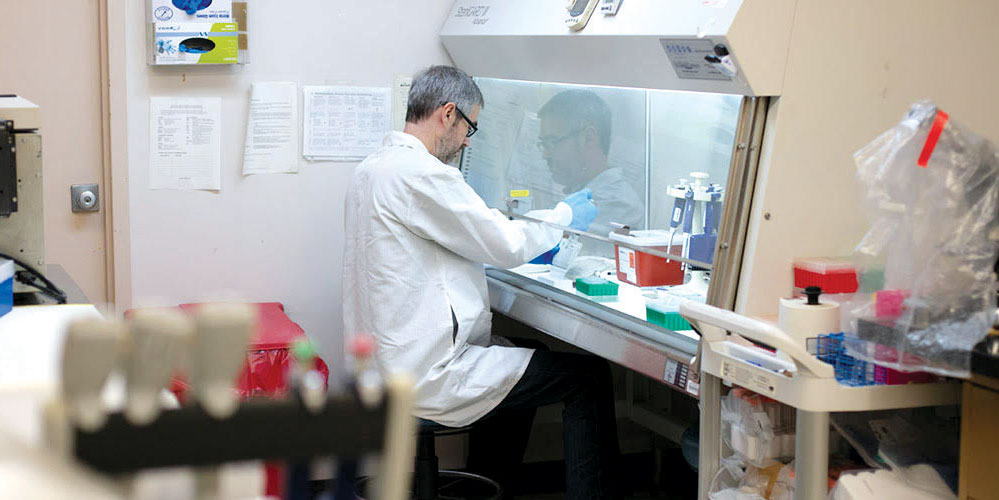Research, or the lack of it, is one not insignificant reason the cannabis industry is in the strange stage of limbo it’s lived in for years: bifurcated, highly restricted with different rules from state-to-state and without much opportunity for grants to deepen our understanding of the plant.
But if two bills making their way through Congress have anything to do with it, that could change. Both are aimed at removing some of the biggest obstacles to academic research into cannabis. One passed in the House earlier this month while the other passed in the Senate a week later.
The differences between the two can be gleaned from a glance at the title of the Senate’s bill, where “marijuana” is spelled, “marihuana,” a nod to how the word was often spelled in the scare movies of the ’30s and ’40s, like Reefer Madness.
The Senate’s bill, the Cannabidiol and Marihuana Research Expansion Act, is aimed at relieving some of the restrictions. It would streamline the application process for researchers who want to study the plant directly, and it would protect doctors who want to discuss with patients the use of cannabis and cannabidiol (CBD, a non-intoxicating element of the cannabis plant helps relieve seizures, anxiety, pain, and other ailments). Currently, many physicians are reluctant to talk about cannabis with patients, even when they would like to.
And that is part of one of the more ludicrous aspects of the legal grey area the pot economy exists. It is legal at least for medical use in most states, while remaining illegal at the federal level, meaning researchers often can’t do the most basic kinds of work to understand the benefits or the harm of the plant.
When researchers can do any work at all, their hands are tied by bureaucracy and severe restrictions because most academic institutions receive federal grant money, a source of funding that could be jeopardized if a lab were to run afoul of federal law. Even researchers who don’t work directly with the plant have to be careful.
Van Butsic, who runs the Cannabis Research Center at U.C. Berkeley, told me last year that when he talks with pot growers about the environmental issues he studies, he makes sure to meet them in a coffee shop or restaurant, because he’s nervous about being anywhere near pot plants. “I have to be cautious about that kind of interaction,” he said.
Due to those hurdles, despite the fact that California is strewn with well-funded cannabis research centers, their work is adding to our knowledge of cannabis’ effects only marginally.
Meanwhile, a big chunk of the CBD business is in the hands of hucksters who, taking advantage of the knowledge void, make wild claims for the health benefits of the substance, while many of the genuine benefits of CBD, THC, and other components of the cannabis plant remain largely unknown.
And though the Senate bill has its strengths in easing that conflict, it also has what most see as a major flaw: unlike the House bill, it would not allow researchers to obtain the kind of cannabis that people actually use. Instead, it would continue to require researchers to continue to obtain cannabis from federally contracted farm at the University of Mississippi.
Every pot researcher I’ve talked to has complained about the Mississippi weed, which has hardly any THC (the intoxicating component of the plant), is full of leaves, seeds and stems. It’s also often moldy. This means that researchers are studying plants that aren’t like anything anyone is actually using.
Ziva Cooper, research director at the Cannabis Research Initiative at UCLA, would like to study the potentially harmful effects of products, like dabs and waxes, that contain ultra-high levels of THC. These products are legally available to Californians, but not to Cooper. “These are potentially very dangerous substances, but we can’t study them,” she said.
The House bill, however, would allow researchers to obtain pot from licensed dispensaries in legal states. The question now is whether the bills will be reconciled or voted on separately.
If the House simply passes the Senate bill, a new law could be signed by President Trump before he leaves office. But many researchers and other observers are crossing their figners that doesn’t happen. Their preference is that something closer to the House bill is what emerges.
The tradeoff, of course, is that it could take up to a year for their preferred policy to wind its way to the fore, and much would depend on whether control of the Senate passes to the Democrats in January after a pair of runoff elections in Georgia.
.Pot Shots: Into the Void




